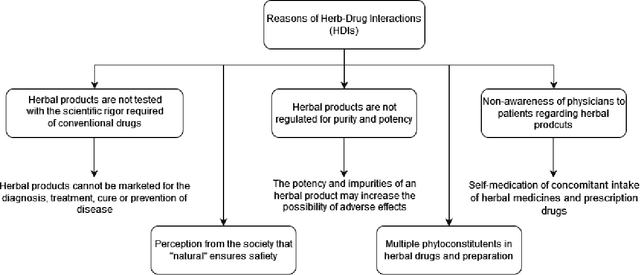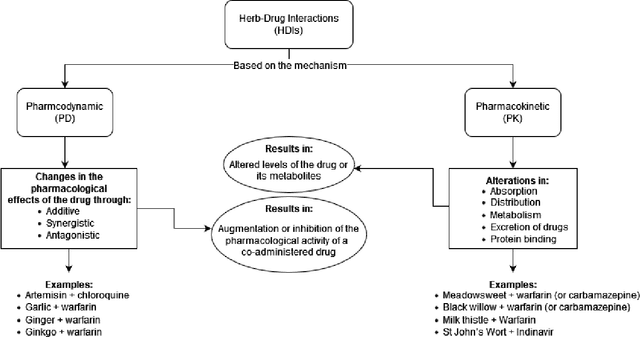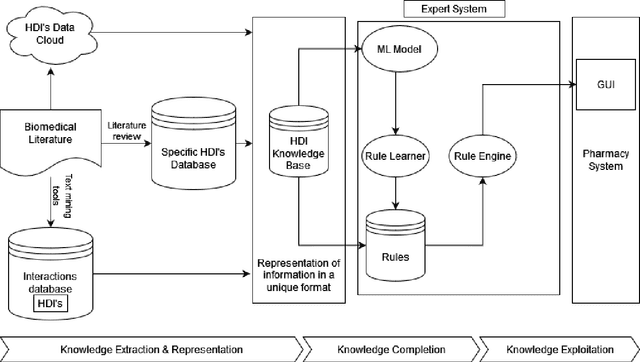Andreia Martins
Herb-Drug Interactions: A Holistic Decision Support System in Healthcare
Jun 27, 2023



Abstract:Complementary and alternative medicine are commonly used concomitantly with conventional medications leading to adverse drug reactions and even fatality in some cases. Furthermore, the vast possibility of herb-drug interactions prevents health professionals from remembering or manually searching them in a database. Decision support systems are a powerful tool that can be used to assist clinicians in making diagnostic and therapeutic decisions in patient care. Therefore, an original and hybrid decision support system was designed to identify herb-drug interactions, applying artificial intelligence techniques to identify new possible interactions. Different machine learning models will be used to strengthen the typical rules engine used in these cases. Thus, using the proposed system, the pharmacy community, people's first line of contact within the Healthcare System, will be able to make better and more accurate therapeutic decisions and mitigate possible adverse events.
From Data to Action: Exploring AI and IoT-driven Solutions for Smarter Cities
Jun 06, 2023Abstract:The emergence of smart cities demands harnessing advanced technologies like the Internet of Things (IoT) and Artificial Intelligence (AI) and promises to unlock cities' potential to become more sustainable, efficient, and ultimately livable for their inhabitants. This work introduces an intelligent city management system that provides a data-driven approach to three use cases: (i) analyze traffic information to reduce the risk of traffic collisions and improve driver and pedestrian safety, (ii) identify when and where energy consumption can be reduced to improve cost savings, and (iii) detect maintenance issues like potholes in the city's roads and sidewalks, as well as the beginning of hazards like floods and fires. A case study in Aveiro City demonstrates the system's effectiveness in generating actionable insights that enhance security, energy efficiency, and sustainability, while highlighting the potential of AI and IoT-driven solutions for smart city development.
 Add to Chrome
Add to Chrome Add to Firefox
Add to Firefox Add to Edge
Add to Edge